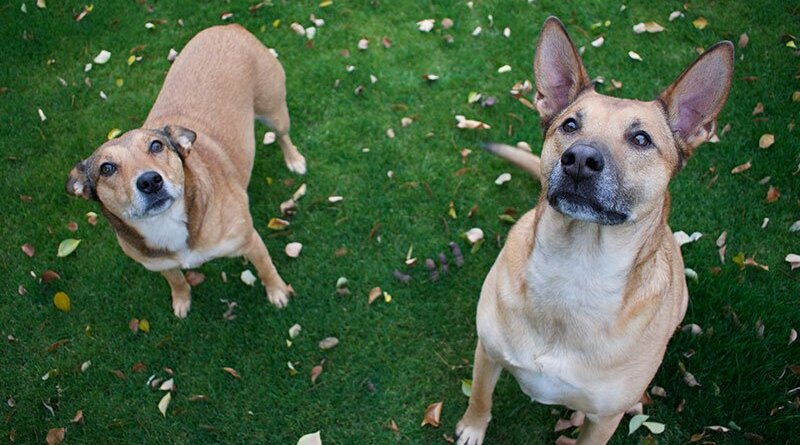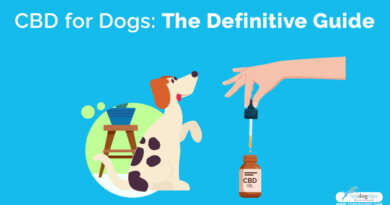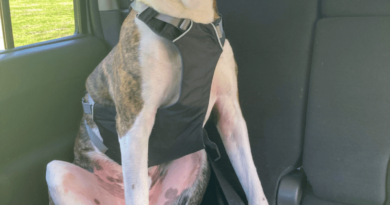Do Dogs Get Jealous? | The Bark
For reasons that defy logic, many people continue to be surprised by the idea that dogs experience complex emotions, and continue to suggest that such emotions, including jealousy, are unique to humans. Whenever I see a psychological study claiming to present evidence that a complex emotion is present in dogs, thus refuting the idea that it is only present in humans, I find myself cringing. Animal research exploring emotional complexity in animals other than humans moved beyond this “uniquely human” idea decades ago, yet in some research circles, this is still discussed as news.
In the 2005 book For the Love of a Dog: Understanding Emotion in You and Your Best Friend, author and behaviorist Patricia B. McConnell, PhD, writes, “Jealousy doesn’t strike me as a particularly complicated emotion. I see tension and aggression between dogs on a weekly basis that seem little different from behavior that we wouldn’t hesitate to call jealousy in young, preverbal children. It all seems to come down to ‘You’ve got it, I don’t, and I’m not happy about that.’… It’s unimaginable to me that they don’t have some sense of missing out on something good. Surely your dog knows when you’re petting another dog that he’s not being petted himself.”
In a 2014 research paper, “Jealousy in Dogs,” the authors write, “[F]rom a functional perspective, one might expect that an emotion that evolved to protect social bonds from interlopers might exist in other social species, particularly one as cognitively sophisticated as the dog.” In that study, they found strong evidence that dogs behave as though jealous. They documented and measured a number of relevant behaviors that dogs exhibited more frequently when their owners behaved affectionately toward another dog than when they offered those same behaviors toward an inanimate object.
Yet here we are, 16 and 7 years later, respectively, with a recent study—Dogs Mentally Represent Jealousy-Inducing Social Interactions—in which psychologists who claim to have additional evidence that dogs experience jealousy discuss the idea that this is often considered a uniquely human emotion. The researchers also discuss their assertion that dogs are able to form a mental representation of the sort of interaction between their owner and another dog that would cause them to feel and act jealous.
GET THE BARK NEWSLETTER IN YOUR INBOX!
Sign up and get the answers to your questions.
They studied 18 dogs and their reactions to their owners’ interactions. The dogs in the study observed their owners in close proximity to a realistic fake dog. Then, a barrier was placed to block the dog’s view of the fake dog, at which point the owner began to pet the fake dog behind the barrier. (The dogs being studied could still see the owners.) The dogs were also observers when the experiment was repeated, this time, with the owners sitting by a fleece tube and petting that tube after the barrier went up.
In the trials with the tube, the fake dog was also present and next to the owner, but the owner did not pay any attention to it. Researchers used the presence of the fake dog to tease apart the influence of the presence of the fake dog and the interaction between it and the owner.
To do this, they measured the force with which the dogs pulled toward their owners in each situation. Pulling harder in the direction of the owner was considered a sign of jealousy. (Studies of jealousy in young children also measure the effort these children make to approach their parents when the parent’s attention is on another activity.)
Based on the increased force of pulling toward their owners when they were petting the fake dog compared to other situations, the researchers claim to have found evidence of jealous behavior in dogs. The dogs pulled hardest when the owners interacted with a perceived social rival (another dog), with an average force of more than twice that exerted in response to their owners petting a fleece cylinder while in presence of the fake dog. Additionally, the dogs reacted with strong force when their owner was interacting with another (fake) dog, even if they couldn’t see that interaction.
Consequently, the researchers concluded that dogs acted jealously when their owners gave attention to another dog, even if that other dog was not visible. They also concluded that the dogs did not act jealous when their owners gave attention to an inanimate object, nor when their owners were near another dog but not paying any attention to that dog. Finally, they determined that the dogs could mentally represent an interaction without actually seeing it.
In my opinion, this study has issues that raise questions about the conclusions. The only behavioral measure taken was the force of the pulling, which can also signal that the dogs simply want to join the interaction. Many dogs enjoy socializing with both people and dogs, and those dogs are likely to pull toward their owner when another dog is engaging with that person. It’s also possible that the pulling simply reflected attention-seeking behavior, which does not necessarily mean the dog was experiencing jealousy.
I have two issues with this research paper. One is the presentation of jealousy in dogs as a ground-breaking idea, and the other is the failure of this paper to demonstrate jealousy in dogs. I don’t think this study (or some of the earlier work on the same subject) provides compelling evidence of jealousy in dogs. However, as mentioned above, there are studies that have been more convincing, and I certainly don’t think it makes sense to view jealousy as uniquely human.
This study investigates canine jealousy, which is a great, but it does not adequately eliminate other explanations for the behavior observed in the study. (It does, however, make a reasonable case that dogs can form mental representations of interactions between their owner and a dog who is out of sight.)
Have you experienced your dog acting in a way that suggests they might be jealous when you give your attention to another dog?





migliori farmacie online 2023 https://farmaciait.pro/ farmacia online migliore